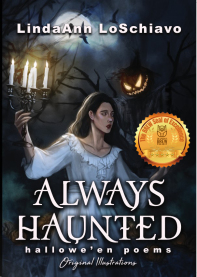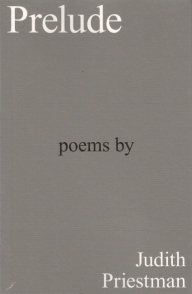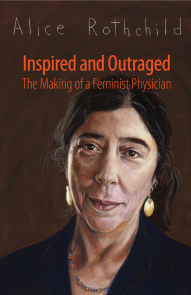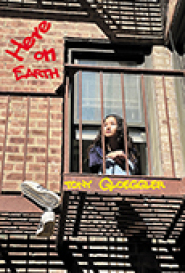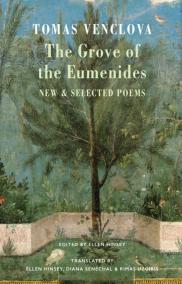
LindaAnn Loschiavo, Always Haunted: Hallowe’en Poems
Elizabeth Siddal Rossetti, Cemetery
Superstar
Retaining fame 160 years
After I died unknown—artwork unsold,
My verses unpublished—has been bizarre.
Do stars need darkness to appreciate
Their glowing? Or wise men to point them out?
My temperamental husband, mad with
guilt,
Laid me to rest with poems, his bound book.
This he missed —more than my companionship.
Where’s my work now? Just then there came a crash
Rude crowbars pried apart my long-sealed
lid.
Men open-mouthed like choristers stared shocked.
Distraught, he’d sent them. Dig her
up! He’ll learn
My flesh looked pale, my red hair’s grown more wild
Rossetti’s poems sweetened maggots’
meals.
Worm-eaten scraps had crowned my coffined head,
A spectral tapestry akin to my
Ophelia pose, a dead girl prettified,
Myself a teen when painted by Millais.
A painting’s fame forgets dead
models—but
Art helps us dream back everything that’s lost.
Note: Elizabeth Siddal [1829-1862] wed Dante Gabriel Rossetti in1849. In 1869, her
husband’s agent Charles Augustus Howell encouraged Rossetti to put an exhumation in motion to retrieve the poems from her grave.
Judith Priestman, Prelude: A Banbury Tale
Chestnut
And when you died we laid out
all your clothes and found
a sprouting conker in the pocket
of a coat you’d borrowed from me,
then insisted was your own.
It looked as if a maggot
was inside the broken shell
and wriggling to get out and spoil
the silky gloss, the palm-cupped
curve, and who knows what.
We potted it and left it
on the bathroom window sill,
where nothing happened
for two weeks until a pale green,
white-green spear poked
through the soil. I didn’t like
to think what might be growing
in your grave by then, but by the time
they’d turfed and tamped it down
we found we had a sapling
on our hands. So when we’d done
the usual things, and finished off
the jam you’d made, but kept your
make-up, which we should
have thrown away – somehow
the smell of you – well, anyway
we moved the tree, damp-grown
and feeble as it was, and let it take
its chance down in the nettles
and the burdocks by the garden fence.
And now I have a giant chestnut there,
regardless of disease, and every year
it grows and fruits it takes me further
from your death and nearer to my own.
Its shadow moves across the lawn.
Alice Rothchild, Inspired and Outraged: The Making of a Feminist Physician
See No Evil
1974
Brookdale Hospital
Brooklyn, New York
the woman sat up in bed, rocking, groaning
(fathers still not allowed in labor and delivery)
her chestnut hair matted
rubbing her swollen belly
hut-hut-hooing herself to full cervical dilation
bathed in the earthy scents of blood and amniotic fluid.
I was so excited to see a mother
doing natural childbirth
focused
breathing
in touch with the rhythms of labor
she had taken all the classes
she wanted to have her baby
HER WAY.
she was in control in a totally out-of-control moment.
(birthing being wildly primordial)
when she pushed with all her fierceness
I felt the magnificent power of her body
a primal life-giving force, womb-goddess-like
channeling the women
who labored and birthed before her.
I was awestruck.
as the baby’s head began to crown
my heart quickened.
but
the anesthesiologist snapped a mask over her face
Take the edge off, dear.
her obstetrician whipped out his forceps
cut a huge episiotomy opening her vagina
slipped the forceps over the baby’s head
and
dragged
it
out
the
last
inch
of
the
birth canal.
robbing her.
the doc turned to me
eyes like darts over his mask.
he held his hands over his ears (you didn’t hear that)
his eyes (you didn’t see that)
his mouth (you will keep silent)
his crotch (you will not say what I did)
Got it?
J. R. Solonche, Reading Takuboku Ishikawa
The Cashier
The cashier in the health food
store said she liked only Starbucks
coffee, so I asked her if she knew
what the Starbucks logo was. It’s a
mermaid or something, isn’t it? she
said. It’s something like a mermaid,
but it’s not a mermaid, I said. What
is it then? she said. It’s a…Oh, I’ve
forgotten what it’s called. I know it
has two fish tails instead of one and
lives in freshwater lakes instead of
the ocean and it’s a figure in Celtic
folklore, but I’m sorry, I can’t think
of what it’s called, I said. No worries.
I’ll look it up, she said, pointing to
her smart phone. I’ll tell everybody
that you told me. Thanks. That’s really
nice, I said. In the car, I remembered
it’s called a melusine. The next time
I’m in the health food store, I must
remember to tell the nice cashier how
much I like the way the youngsters
these days say, “No worries.”
